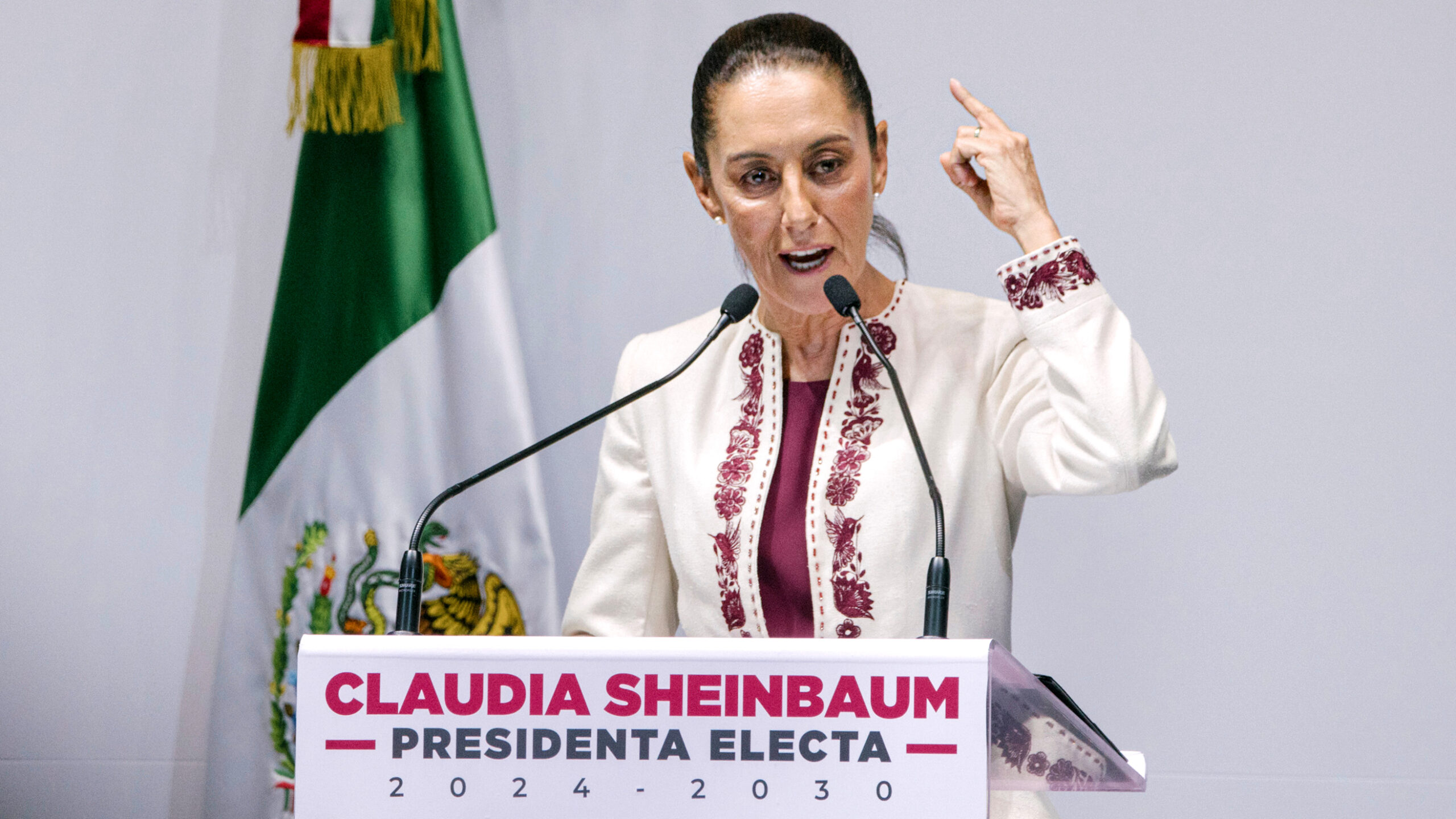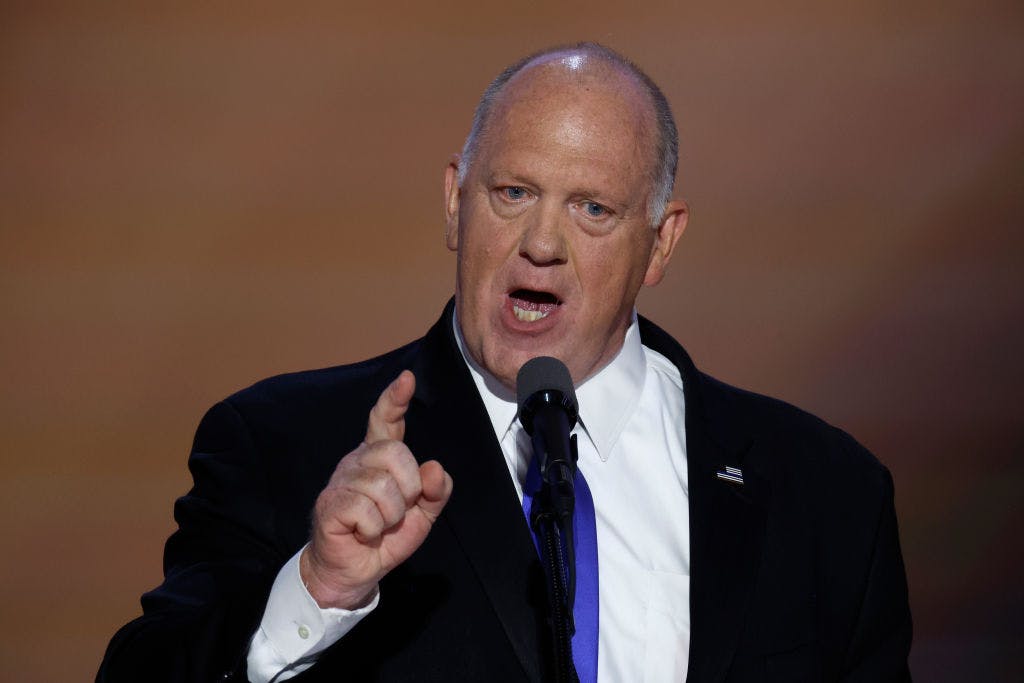Kamala Harris Offered A Four-Year DEI Seminar. America Said No.
I’m not a professional election strategist. Nor am I a scholar of political campaigns and the psychological tactics behind their success. Despite both these holes in my resume, I’m willing to go out on a massive limb and make a bold statement about the election result we’ve just witnessed: if identity politics isn’t dead, the ...

I’m not a professional election strategist. Nor am I a scholar of political campaigns and the psychological tactics behind their success. Despite both these holes in my resume, I’m willing to go out on a massive limb and make a bold statement about the election result we’ve just witnessed: if identity politics isn’t dead, the American people just dealt it a truly devastating blow. Whether you’re a conservative seeking the end of race politics, or a progressive trying to get outside your echo chamber to understand the extent of the electoral shellacking your agenda’s just experienced, it’s time to look at Kamala Harris’ failed campaign and answer the question: is her loss despite her DEI credentials, or because of them?
Let’s start with the basic observations. Kamala Harris was a DEI pick — this term, despite the many accusations of racism attached to it, was more than deserved. Picked for her gender, and also at the behest of advisors urging Joe Biden to pick a black running mate, Harris had the opportunity to rise above both this less-than-ideal recruitment method and also her complete lack of experience running in a general presidential election. She didn’t have to run a DEI campaign. Running a pro-abortion, economically ignorant campaign paired with an inability to articulate basic policy tenets and an unwillingness to handle any audience that wasn’t already in the bag for her would have been enough. But a second look at some of Harris’ closing gambits reveals that the shiny toy of race-baiting was simply too bright to say no to.
Rewind to October, when Harris called in the big guns to deal with her struggles reaching black male voters. And by big guns, I mean the biggest gun — Barack Obama attended Harris’ Pittsburgh to issue some tough talk to the Democratic Party’s errant voter base. “My understanding, based on reports I’m getting, is that we have not yet seen the same kinds of energy and turnout in all quarters… as we saw when I was running,” spat Obama, with the subtlety of a father about to lecture his children about doing chores with a cheerful attitude.
And parental might just be the best term for Obama’s pathos — the former president spoke bitterly about how reluctance to support the foundering Harris campaign “seem[ed] to be more pronounced with the brothers. Part of it makes me think that, well, you just aren’t feeling the idea of having a woman as president.” Obama continued to beat the dead horse of presumed misogyny, with a side strategy of racial solidarity thrown in for good measure. “Women in our lives have been getting our backs this entire time,” he told the Pittsburgh audience. “When we get in trouble and the system isn’t working for us, they’re the ones out there marching and protesting.” The identitarian beatings from Obama will continue until morale improves.
The message from the Harris campaign through the course of this election cycle has been simple: get over your concerns about the content of this candidate’s character and start judging by the color of her skin already. When criticisms of Harris arose in the past, Biden’s chief of staff was quick to dismiss them as the products of racism and sexism. During the campaign, Harris’ allies like Maryland’s Wes Moore were quick to tie her electoral fate to America’s racial reckoning. Now, Democratic acolytes like David Axelrod are calling for a renewed look at how racialism influenced Trump’s victory — and conveniently making no mention of how racial obsession landed the Democratic Party with such a profoundly lackluster candidate. Harris, like countless racialist candidates before her, employed the clever dichotomy of race politics. If she won, it was a victory over racism, and more race obsession must follow to root out the racism that remains. If she lost, not only was it indicative of racism from white voters, but apathy from the kind of minority voters that one black Alabama pastor lambasted as “ignorant stupid negros” on the sign outside his church, in a stunning display of self-aware political persuasion.
The alternative is that maybe, just maybe, the Democratic Party’s racial premises are increasingly being rejected wholesale. Kamala Harris’ campaign failed for the same reason DEI is failing in the modern corporate and academic sphere — it’s becoming profoundly unclear what the value add of mere racial diversity is, taken on its own, to business, academia, or politics. The elevation of pure identity politics, pursued without regard to character or qualification, into the classroom and boardroom has led to widespread mission drift and counterproductive institutional policies. The electoral arena, unsurprisingly, is the same.
Kamala Harris’ campaign held out the weaknesses of identity politics to American voters and threatened 4 years of lecturing if her weaknesses were not rewarded with success. It’s a testament to the character of the American people, of both genders and all races, that they didn’t take that threat seriously.
* * *
Isaac Willour is an award-winning journalist focusing on race, culture, and American conservatism, as well as a corporate relations analyst at Bowyer Research. His work has been featured at outlets including USA Today, the Wall Street Journal, the New York Times Opinion, C-SPAN and the Daily Wire. He is a member of the Young Voices contributor program and can be found on X @IsaacWillour.
The views expressed in this piece are those of the author and do not necessarily represent those of The Daily Wire.
Originally Published at Daily Wire, World Net Daily, or The Blaze
What's Your Reaction?

































































































